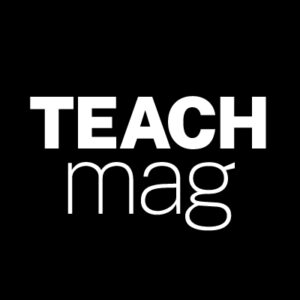As families prepare for another exciting school year, there’s one simple ingredient that can set students up for success: sleep. Quality sleep is the foundation that helps students thrive academically, stay healthy, build strong friendships, and feel their best in school and at home.
The American Academy of Sleep Medicine (AASM) is hosting its sixth annual Student Sleep Health Week from September 15–19, bringing together families, educators, and community groups to highlight the importance of healthy sleep for students of all ages.
“As the new school year approaches, the American Academy of Sleep Medicine recommends that families revisit bedtime routines and shift away from lingering summer habits, like late nights with friends or scrolling social media before bed,” said Dr. Shalini Paruthi, pediatric sleep medicine physician and spokesperson for the AASM. “Resetting healthy sleep habits early can help students start the year focused, well-rested, and ready to succeed.”
Consequences of Insufficient Sleep
According to a new survey from the AASM, 85% of parents say their school-aged children have a regular bedtime routine. But what happens when kids don’t get enough sleep? Parents say that their children are negatively impacted in mood (63%), behavior (50%), attitude (49%), physical energy (45%), and academic performance (34%).
“Sleep plays a critical role in helping kids manage their mood and mental health,” added Paruthi. “If your child is struggling emotionally or behaviorally, assessing their sleep habits is a key first step. Don’t hesitate to reach out to your pediatrician, who can help identify solutions and provide support.”
The AASM recommends that kids between 6 and 12 years should get 9 to 12 hours of sleep each night, and those between 13 and 18 years should get 8 to 10 hours of sleep each night. Online tools, like the AASM bedtime calculator, can help parents regulate their children’s overall sleep routines based on their specific needs.
Nearly One-Quarter of Parents Turn to Melatonin
According to the survey, 24% of parents have given a child under the age of 18 melatonin to help them sleep. However, increased use of the supplement in children has raised safety concerns, including a rise in reported overdoses, calls to poison control centers, and emergency room visits.
In 2022 the AASM released a health advisory advocating for parents to discuss melatonin with a pediatric health care professional before administering it to children.
Student Sleep Health Week Resources
Student Sleep Health Week is presented in conjunction with supporting partners Beyond Bedtime, the National Association of School Nurses, Project Sleep, SHAPE America, and Start School Later. It was supported by a resolution in the U.S. House of Representatives in 2020.
For more information about Student Sleep Health Week, visit the AASM’s Sleep Education website. Educators interested in encouraging healthy sleep in students can access the AASM toolkit of resources, including lesson plans, posters, and classroom activities.
Look for social media content using the hashtag #SleepWelltoExcel or #StudentSleepWeek, and join parents, students, teachers, and others talking about why it’s important for kids to get the sleep they need to be healthy and successful.
About the American Academy of Sleep Medicine
Established in 1975, the AASM is a medical association that advances sleep care and enhances sleep health to improve lives. The AASM membership includes more than 9,500 physicians, scientists, and other health care professionals who help people who have sleep disorders. The AASM also accredits 2,300 sleep centers that are providing the highest quality of sleep care across the country. Learn more at aasm.org.
TEACH is the largest national education publication in Canada. We support good teachers and teaching and believe in innovation in education.


